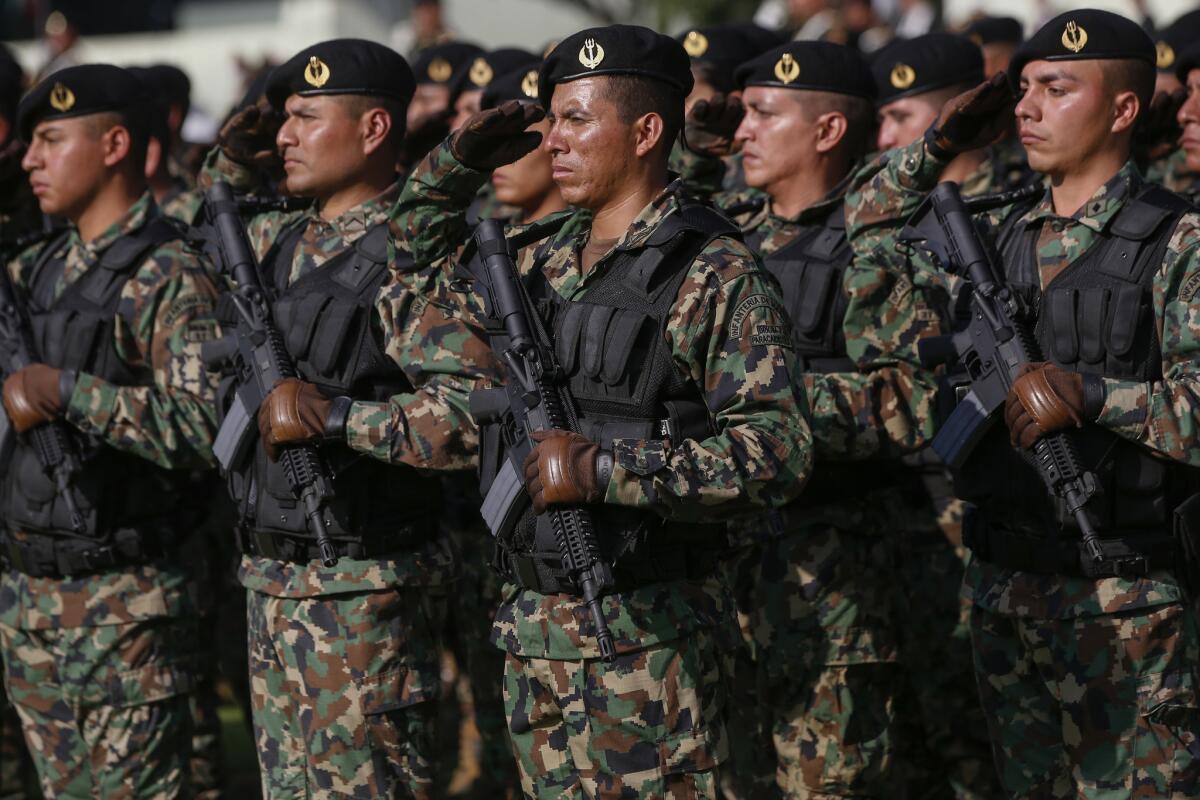Mexico’s Congress approves revision of military code of justice

- Share via
Reporting from Mexico City — The Mexican Congress on Wednesday approved a major revision of the military code of justice that will require that soldiers, sailors and officers who abuse civilians be prosecuted in the civilian court system.
Human rights organizations, who have long demanded this as a way to end rampant impunity in the military, hailed the decision as “historic.”
The vote in the lower house of Congress was unanimous. The upper house also approved the changes unanimously late last week.
Traditionally, the Mexican military has insisted on prosecuting its own, even when alleged victims were civilians, in largely secret proceedings. That meant, according to critics, that military personnel frequently got away with murder, torture and other illegal abuse.
Mexico came under enormous pressure from domestic and global human rights organizations, the United Nations and international courts to change the system. Eventually, the Mexican Supreme Court also agreed. But the army and navy remained resistant.
While many activists had hoped the legislation approved Wednesday would have gone further, most agreed it was a big step.
“The military justice system has a near-perfect record of never punishing soldiers for abuses,” said Nik Steinberg, Americas researcher for New York-based Human Rights Watch, who has followed the issue closely.
“This reform is a game-changer for thousands of victims, who will no longer be forced to try their cases in a completely biased and opaque system.”
Some of the more notorious cases include young indigenous women from Guerrero state raped by soldiers in the early 2000s. For years the victims sought justice, but their assailants apparently remained at large. Other such cases involved indigenous men, also in Guerrero, who were “disappeared” by soldiers as far back as the 1970s. In both examples, the Mexican government finally apologized to the victims in 2011, following orders from the Inter-American Court of Human Rights.
Yet cases of suspected abuse by security forces against civilians only multiplied as the military waged a bloody war against drug cartels starting in December 2006. Since then, more than 70,000 people have been killed and more than 20,000 have gone missing, some of whom were last seen in custody of the military.
“The reluctance of military commanders to install a true regime of respect for human rights inside its armed institution will keep the army and the navy under international scrutiny,” a coalition of Mexican human rights groups, including the Guerrero-based Tlachinollan, said in reaction to Wednesday’s congressional vote. It urged the Congress to ensure that the military complies.
More to Read
Sign up for Essential California
The most important California stories and recommendations in your inbox every morning.
You may occasionally receive promotional content from the Los Angeles Times.











